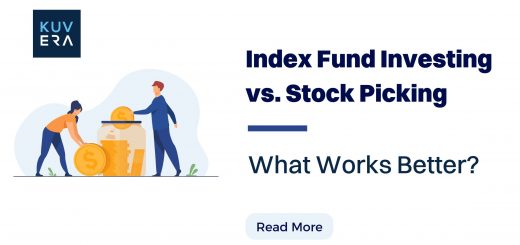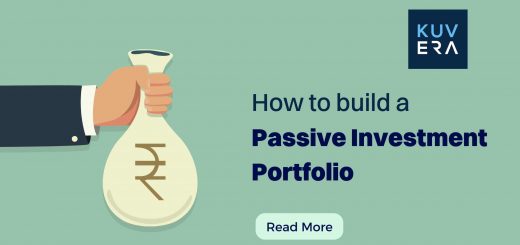As an investor, you may want to invest in different markets, sectors, or asset types. Equity ETFs are the most common types of ETFs, enabling you to own part of hundreds or even thousands of companies in a single trade.
What is an equity ETF?
Exchange-Traded Funds (ETFs) that track an index of stocks are known as equity ETFs. These investment vehicles combine the flexibility of investing in stocks with the simplicity of mutual funds. ETFs, like stocks, trade on the stock exchanges, and you can buy them anytime during the trading hour. These index-based passive investment schemes invest in securities similar to the underlying index. The holding of an ETF is entirely transparent due to its index-mirroring nature.
How does equity ETF work?
Equity ETFs can be specific to a market capitalization or sector. Thus you can invest in ETFs that cover large-cap companies, mid-cap companies, small companies or stocks from a particular theme. Equity ETF lets you target industries that are performing well at the time, such as pharma, IT and banking etc. Furthermore, equity ETFs are passively managed funds. In other words, the ETFs’ portfolio composition changes only when the asset allocation of the underlying index changes.
Types of ETFs
Most ETFs are index-based and aim to replicate a specific index on a benchmark. These indexes could be based on stocks, and an index ETF seeks to track index performance by holding all your respective index samples. There are the following types of equity ETFs listed below;
- Fixed income ETFs
It is essential to diversify your portfolio. Spreading your investment is a good practice. That’s why most professionals will also invest in fixed income and bond ETFs that provides steady return at potentially lower risk than equity ETFs.
- Currency ETFs
Currency ETFs will invest either in a single currency or a basket of currencies. The ETF will directly invest in currencies, use derivatives, or mix the two. Using derivatives can potentially add more risk to the ETF, so you must be sure about what you buy.
- Commodity ETFs
Often harder to access than stocks, ETFs are a great way to get into commodities like gold, silver, or oil. These are attractive alternatives to stock to diversify your portfolio further. However, commodity ETFs can be less transparent than other ETFs like indexes and stocks.
- Factor ETFs
Factor investing is an investment approach that involves targeting specific drivers for return across asset classes. Institutional investors and active managers have been using factors to manage portfolios for decades. A common way to access factors is through rules-based ETFs.
Who should invest in equity ETFs?
When choosing an equity investment for investment, it is necessary to define your investment goals and tenure. You can pick the right fund to invest in based on your goals, risk tolerance levels, and investment horizons. Since equity is a diverse asset class, various ETFs are available for investors. You can choose the suitable ETF scheme depending on your risk tolerance, investment goals, and exposure preference.
Advantages of equity ETFs
The advantages of equity ETFs are listed below;
- Low-cost: Equity ETFs are passively managed schemes. Thus, the number of transactions to maintain the portfolio is much lesser than actively managed funds. As a result, the fund management cost is lower. The ETF portfolio changes only when there are changes in the index composition. Minimal research cost and portfolio turnover Make these ETFs a low-cost option.
- Diversification: Equity ETFs have a diversified investment portfolio that tracks an index belonging to a market cap, sector, theme or geography. Thus you can enjoy exposure to all the stocks that form part of an index by investing in an equity ETF.
- Real-time prices: Since equity exchange-traded funds are listed on the stock market, you can buy and sell them just like stocks and shares at any time during trading hours.
- Volatility: Equity investments are highly volatile. Stocks are susceptible to market fluctuation. However, these ETFs are less volatile than equity mutual funds or stock investments. Since the portfolio comprises high-quality stocks, the volatility is less.
Investing in ETFs all depends on you. Before choosing any investment plans, consider your investment goals and risk appetite so that you can reap the maximum benefit from your investment plans to cater for your needs.
Watch the YouTube video above by ICICIPrudentialAMC to understand the significance of ETF, the types of ETF, how to buy ETFs, the advantages of ETF, and much more
Interested in how we think about the markets?
Read more: Zen And The Art Of Investing
Watch here: How to invest during a bear market?
Start investing through a platform that brings goal planning and investing to your fingertips. Visit kuvera.in to discover Direct Plans and Fixed Deposits and start investing today. #MutualFundSahiHai #KuveraSabseSahiHai











